Search Results
Showing results 1 to 20 of 111
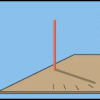
Where is the Sun?
Source Institutions
In this activity, learners verify that the Sun appears in a different location at a specific time every day of the year with one exception: on the Equinoxes.

Soap Bubble Shapes
Source Institutions
Learners explore three-dimensional geometric frames including cubes and tetrahedrons, as they create bubble wands with pipe cleaners and drinking straws.
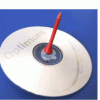
CD Spinner
Source Institutions
In this activity, learners create a simple “top” from a CD, marble and bottle cap, and use it as a spinning platform for a variety of illusion-generating patterns.
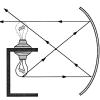
Touch the Spring (Lightbulb)
Source Institutions
In this activity, a lightbulb is placed in front of a concave mirror. The actual lightbulb is not visible to the viewer, but the viewer can see the mirror image of the lightbulb formed in space.
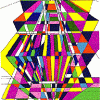
Our Sense of Sight: Color Vision
Source Institutions
In this activity, learners investigate color vision as well as plan and conduct their own experiments.
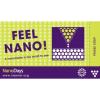
Exploring Tools: Special Microscopes
Source Institutions
In this activity, learners use a flexible magnet as a model for a scanning probe microscope (SPM). They learn that SPMs are an example of a special tool that scientists use to work on the nanoscale.
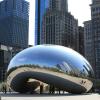
Mirrors and Images
Source Institutions
In this optics activity, learners explore how many objects they can see in a set of mirrors (hinged like a book) at various angles.
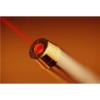
Delta, Delta, Delta
Source Institutions
In this experiment, learners construct an equilateral triangle using graph paper, a pencil, protractor and ruler. They also make a "laser triangle" using a laser pointer and front-silvered mirrors.
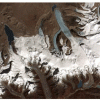
Earth's Energy Cycle: Albedo
Source Institutions
In this activity, learners experiment and observe how the color of materials that cover the Earth affects the amounts of sunlight our planet absorbs.
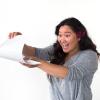
Cylindrical Mirror
Source Institutions
In this activity, learners create a cylindrical mirror to see themselves as others see them.
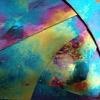
Iridescent Art
Source Institutions
This is a quick activity (on page 2 of the PDF under Butterfly Wings Activity) that illustrates how nanoscale structures, so small they're practically invisible, can produce visible/colorful effects.
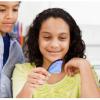
Morphing Butterfly
Source Institutions
In this activity, learners explore how nanosized structures can create brilliant color.
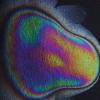
What is Nanotechnology?
Source Institutions
In this activity related to nanotechnology, learners observe some of the effects that result from creating a thin layer of material several nanometers thick.
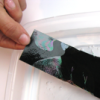
Exploring Materials: Thin Films
Source Institutions
In this activity, learners create a colorful bookmark using a super thin layer of nail polish on water. Learners discover that a thin film creates iridescent, rainbow colors.
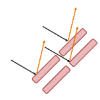
Liquid Crystals Interact with Light!
Source Institutions
In this two-part activity, learners explore the properties of liquid crystals, which are responsible for why mood rings change color.

Terrestrial Hi-Lo Hunt
Source Institutions
In this outdoor activity, learners search for the warmest and coolest, windiest and calmest, wettest and driest, and brightest and darkest spots in an area.

Sensory Hi-Lo Hunt
Source Institutions
In this outdoor activity, learners use only their senses to to find the extremes of several environmental variables or physical factors: wind, temperature, light, slope and moisture.
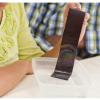
Rainbow Film
Source Institutions
In this activity, learners use clear nail polish to create a beautiful iridescent pattern on black paper. Learners discover that a thin film creates iridescent, rainbow colors.
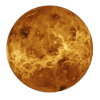
Radar Mapping: What's in the Box?
Source Institutions
In this activity, learners mimic remote sensing. Learners use a stick to measure the distance to a "planet surface" they cannot see, and create their own map of the landscape.
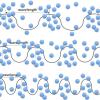
Light and Sound
Source Institutions
In this four-part activity, learners explore light and sound through a variety of hands-on investigations.
